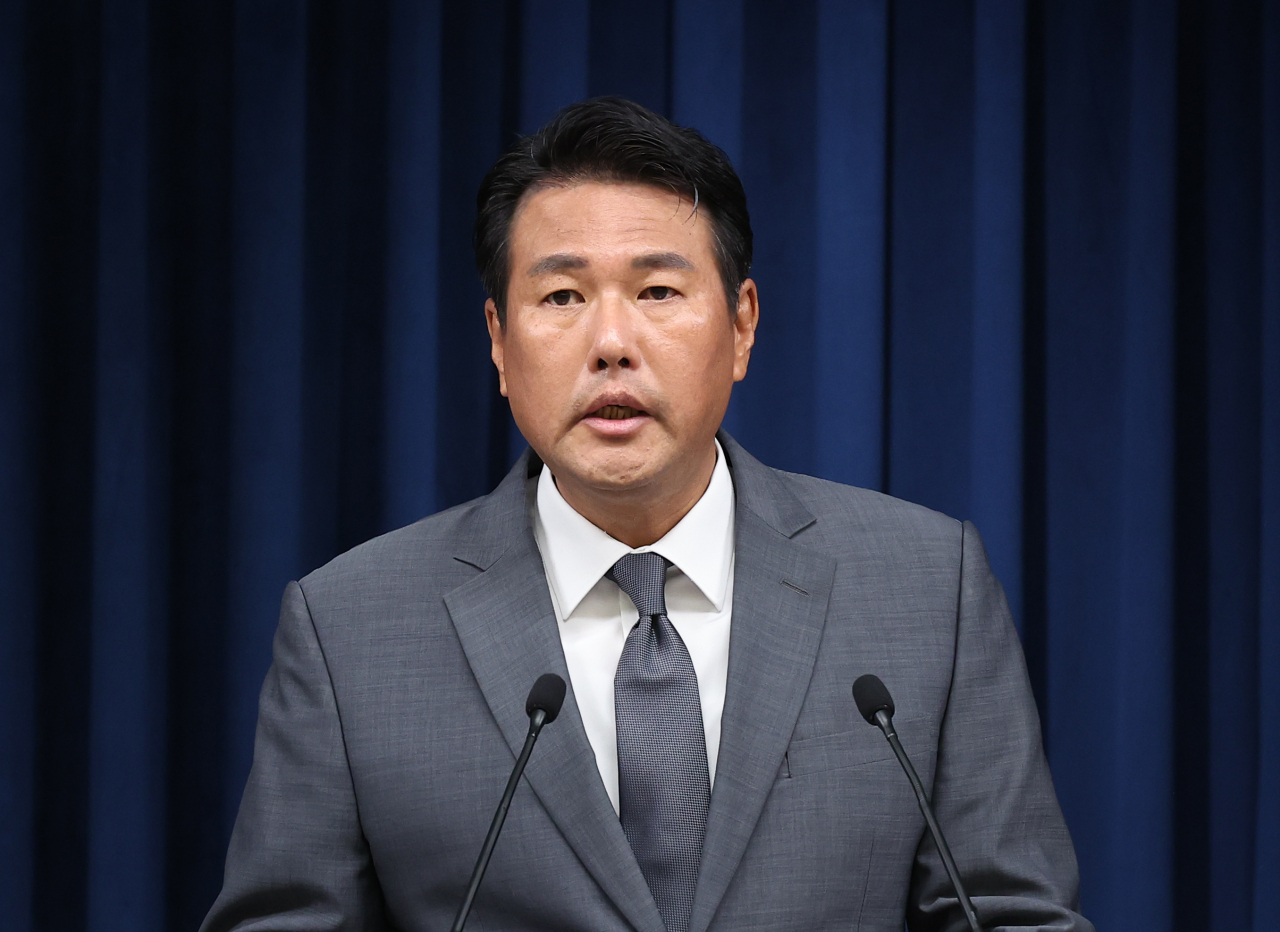Korea, US, Japan to discuss security cooperation at trilateral summit
Yoon sets stage for pivotal talks at Camp David; eyes on bilateral engagements
By Shin Ji-hyePublished : Aug. 13, 2023 - 18:03

President Yoon Suk Yeol will depart Thursday for a landmark summit with the leaders of the United States and Japan at Camp David, Maryland, which aims to create a framework for trilateral security cooperation in the Indo-Pacific region.
The wives of the three leaders will not accompany them to event.
It will be the first standalone summit involving South Korea, the US and Japan. There have been 12 three-way summits in the past, but all have been held on the sidelines of a larger gathering.
"We plan to have a trilateral summit on the morning of Aug. 18 followed by a summit lunch," Kim Tae-hyo, deputy national security director, said at a press briefing on Sunday. "After that, we will announce the results of the talks between the leaders of the three countries through a joint press conference."
He added the leaders were currently coordinating to hold bilateral summits between Korea and the US and Korea and Japan to be held on the same day.
“Through this summit, the trilateral body of Korea, the US and Japan will gain distinct independence as a cooperative body in the Indo-Pacific region,” Kim said, adding the core framework of future trilateral security cooperation will also be created and institutionalized.
The three leaders will discuss how to strengthen trilateral security cooperation to respond to common regional threats, such as North Korea’s nuclear and missile threats. They will also discuss plans to respond to economic security issues, such as cutting-edge technologies and supply chains that will secure future growth engines for the three nations.
The summit would “serve as an opportunity for the three countries to play a pivotal role in pursuing freedom, peace and prosperity in the Indo-Pacific region,” Kim said.
The discharge of treated water from Fukushima will not be discussed at the event.
A high-ranking official in the presidential office told reporters on the condition of anonymity that the issue was not on the agenda, as discussions have already been made on a bilateral level between Japan and its friendly nations, including Korea.
The schedule of discharging the water is to be decided by Japan through the International Atomic Energy Agency, he said.
The official said the joint statement after the summit may include a joint response explicitly citing North Korea, as the regime poses a substantial ballistic missile and nuclear threat.
China has expressed discomfort about the growing solidarity between the three nations.
Ahead of the Korea-US-Japan summit, Chinese official newspaper the Global Times recently warned that the summit could endanger South Korea and Japan, calling it the US desire to build “mini-NATO-style” trilateral military alliance in Northeast Asia. It said, “The path (Korea and Japan) choose will leave completely different footnotes in history.”
It was revealed Sunday that the Chinese and Russian ambassadors in Seoul and Pyongyang met.
According to the social network service of the Russian Embassy and the website of the Chinese Embassy in South Korea, Chinese Ambassador Xing Haiming and Russian Ambassador Andrey Kulik met at the Chinese Embassy in Seoul on Thursday.
A meeting between the Chinese and Russian ambassadors in Pyongyang took place around the same time. Chinese Ambassador to North Korea Wang Yajun met with Russian Ambassador to North Korea Alexander Matsegora at the Chinese Embassy in Pyongyang on Friday to discuss Korean Peninsula issues and international and regional issues, according to the Chinese Embassy in North Korea.
The presidential office said it did not expect the statement to use language targeting China.
The high-ranking official said, "It is expected that (the joint statement) will not contain expressions suggesting that countries like Korea, the US, and Japan are hostile to China, or that they are 'acting like this' because of China."



















![[Today’s K-pop] Treasure to publish magazine for debut anniversary](http://res.heraldm.com/phpwas/restmb_idxmake.php?idx=642&simg=/content/image/2024/07/26/20240726050551_0.jpg&u=)